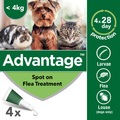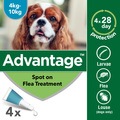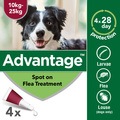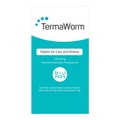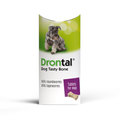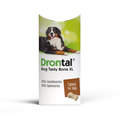Easter is on the horizon and chocolate eggs will be in abundance! But what should we do if the worst happens and your dog manages to eat some? How can we be prepared for this if it happens?
What does chocolate do to dogs?
Chocolate contains Theobromine. Humans can break down Theobromine easily as we have the correct enzyme, but our dogs can’t. This means it builds up to dangerous levels in the blood.
Theobromine acts like caffeine, so essentially dogs who eat chocolate have a massive caffeine overdose. Mild toxicity includes vomiting/diarrhoea, tremors and high heart rates. Large doses ingested can result in seizures, heart arrhythmias and even death.
My dog has eaten chocolate, what now?
1. Check if the dose was toxic
Dogs can have a small amount of chocolate and still be fine, but it depends on the type of chocolate and the size of your dog. Contact your vet with this information and they will be able to advise you.
2. Get help where it is needed
Depending on the level of toxicity, you will need to act differently:
No treatment necessary
-
If the dose of Theobromine ingested is less than 20mg/kg, your vet can help you work this out.
-
The amount ingested by your dog is not enough to cause any major concerns.
-
If you want to be extra safe then consider giving activated charcoal (Carbodote), which will bind any chocolate already in the stomach/intestines rendering it harmless. It can be mixed into food, or syringed into the mouth.
-
Always priortise seeking your local vet's though before treating.
-
Emergency treatment advised
-
If the dose of Theobromine ingested by your dog is greater than 20mg/kg, your vet can help you work this out
-
The amount ingested could be potentially toxic. It is important you contact your local vet immediately and get your dog seen.
-
They will likely give an injection to cause your dog to vomit up any chocolate that is still in the stomach. They likely will also recommend activated charcoal to be used after this (Carbodote). In severe cases, your dog may be hospitalised.
We hope this information is helpful. Remember it is always safest to contact your vet if you are concerned in any way about your pet. They can give you the most tailored advice for your individual dog.
Written by: Dr. Nick Garside BVetMed MRCVS



